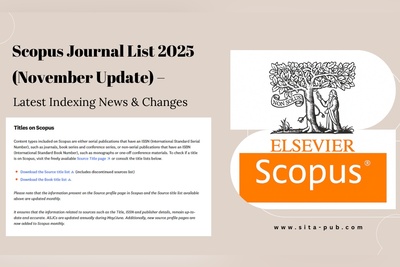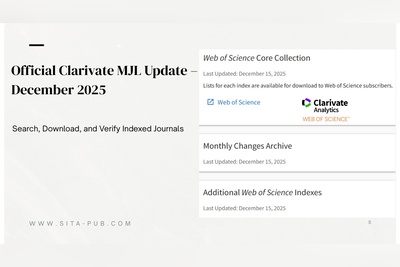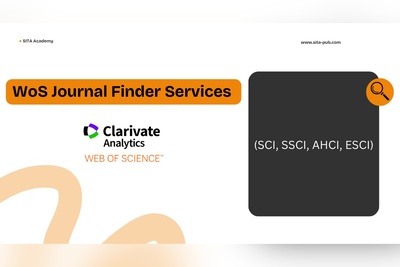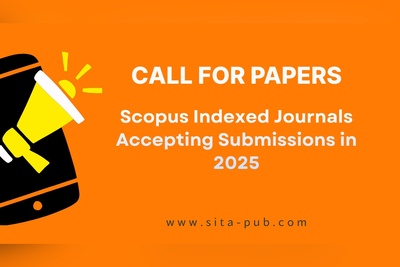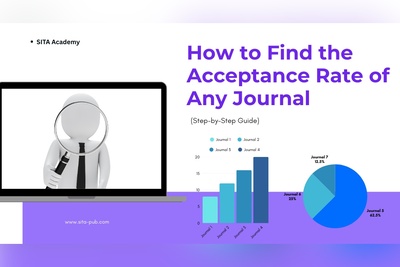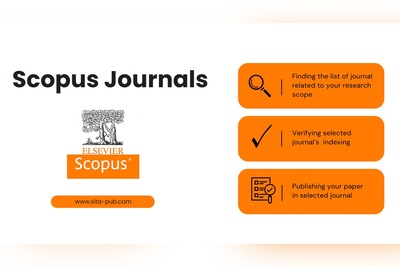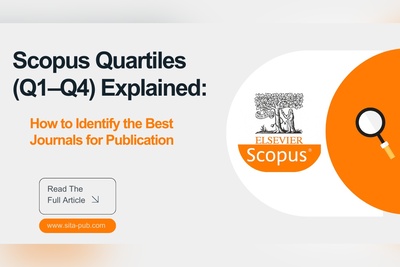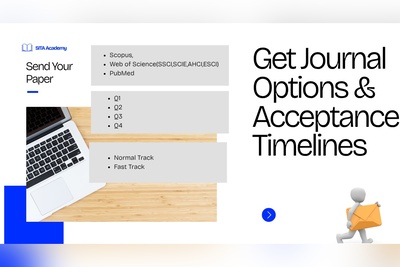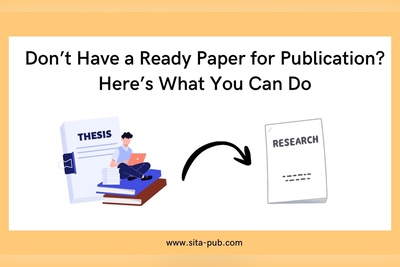Journal Selection and Publication
Are you looking for the right journal to publish your research paper while meeting your academic requirements? This guide explains key criteria, tools, and checklists to help you choose confidently.
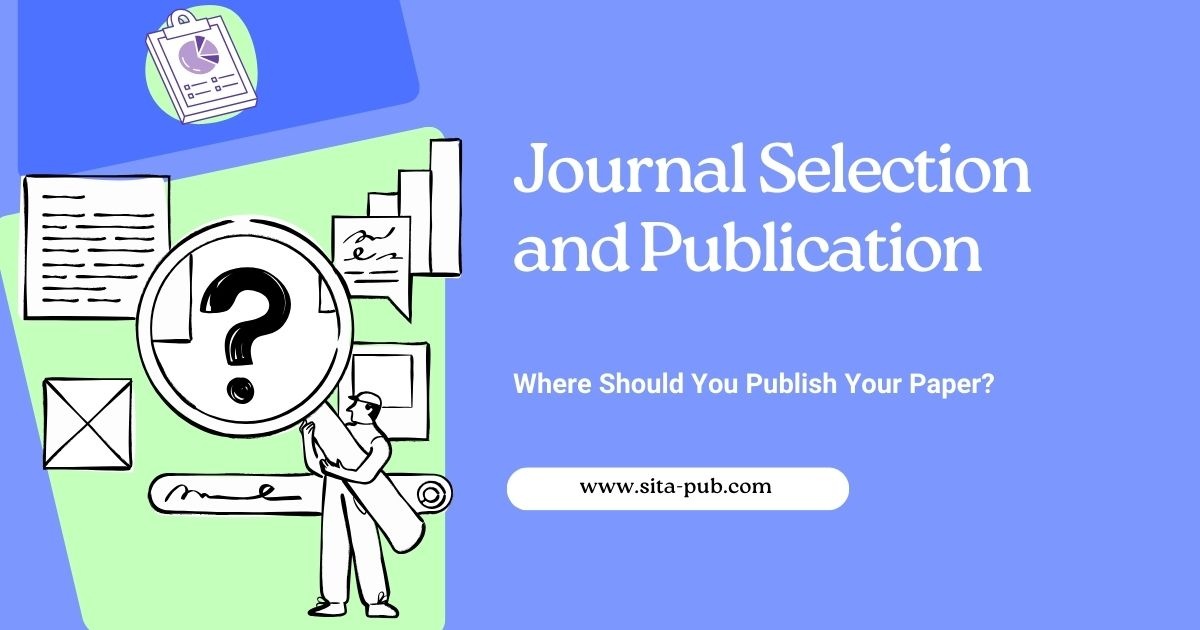
Every year, thousands of researchers face the same frustrating experience: they spend months writing a manuscript, only to see it rejected at the desk review stage. The reason? Not the quality of their research, but the fact that they submitted it to the wrong journal.
Choosing the right journal can make the difference between quick acceptance and endless cycles of rejection. It affects your visibility, citations, academic reputation, and even your career progress. Yet, for many researchers, journal selection feels overwhelming—with thousands of options, varying fees, and unclear timelines.
In this guide, we’ll break down everything you need to know:
The criteria for selecting the right journal
A step-by-step checklist to define your requirements
Tools and databases to find suitable journals
How journal recommendation services can save you weeks of work
A practical finalization checklist to make your decision confidently
And finally, we’ll explain why SITA Academy’s Journal Selection Service is the fastest, safest way to get your paper published in the journal that best matches your needs.
Why Journal Selection Matters
✅ The right journal ensures your research reaches the right audience.
✅ Publishing in indexed and reputable journals strengthens your academic profile.
❌ The wrong choice can lead to desk rejections, long delays, or even predatory journals.
Simply put: journal selection determines the success, visibility, and impact of your research.

Key Criteria for Choosing the Right Journal
When evaluating potential journals, consider these critical factors:
Indexing and Impact
Is the journal indexed in Scopus, Web of Science, or PubMed?
What is its quartile ranking (Q1–Q4 in Scopus) or impact factor in WoS?
Scope and Audience
Does the journal’s aims and scope align with your research?
Will your target audience read, cite, and share articles from this journal?
What is the publication fee?
Does it offer open access or is it subscription-only?
Can your institution or funding body cover the costs?
Publication Timeline
How long from submission to first decision?
Does the journal offer fast-track review or guaranteed timelines?
Acceptance Rate
Is the journal highly selective (low acceptance) or more accessible?
What are the chances your manuscript fits and gets accepted?
Reputation and Reliability
Is the publisher reputable (e.g., Elsevier, Springer, Wiley)?
Has the journal been verified as legitimate, not predatory?
Special Requirements
Do you need open access to comply with funding rules?
Is your priority prestige, speed, or affordability?
Checklist: Define Your Requirements Before Searching
Before exploring options, clarify what you actually need. For example:
Indexed in Scopus (Q3 or above)
Publication timeline within 3 months
Open access option available
Maximum APC: 1200 Euros
Subject scope: directly related to your research field
Think of this as your compass—it will help you filter out unsuitable journals quickly.
Where to Find Journal Options
Instead of randomly browsing the internet, use reliable tools and databases:
Publisher Tools
Elsevier Journal Finder – matches your abstract & keywords.
Springer Journal Suggester – suggests journals based on research scope.
Wiley Journal Finder
Taylor & Francis Journal Suggester
Databases
Scopus – check quartile ranking and indexing.
Web of Science – verify impact factor and scope.
DOAJ (Directory of Open Access Journals) – for reliable OA journals.
Journal Recommendation Services
Many universities, research centers, and academies (like SITA Academy) offer journal matching services. These go beyond keyword matching—they consider your:
Indexing requirements
Timeline needs
APC budget
Research scope
How Journal Recommendation Services Work
Here’s how professional journal selection saves you time:
You provide your manuscript (title, abstract, keywords, and requirements).
Experts analyze your paper and search through thousands of journals.
They shortlist journals that match:
✅ Correct indexing (Scopus, WoS, PubMed)
✅ Target quartile or impact factor
✅ Speed and affordability requirements
✅ Relevant scope
You receive verified, tailored options—ready to choose from.
Result: You avoid wasting time, eliminate the risk of predatory journals, and improve your acceptance chances.
Checklist for Finalizing Your Journal Choice
Once you have options, use this checklist to finalize your decision:
✅ Is the journal indexed where I need (Scopus, WoS, PubMed)?
✅ Is it legitimate and not predatory?
✅ Does it align with my subject area and audience?
✅ Does it meet my desired quartile or impact factor?
✅ Is the timeline acceptable (standard or fast-track)?
✅ Are the fees affordable and within my budget?
✅ Does it offer open access if required?
✅ Is the publisher reputable and recognized?
✅ Does it have a reasonable acceptance rate?
👉 If most answers are “yes,” you’ve likely found your journal.
Example Scenarios
Case 1: Speed Priority
A researcher needs a Scopus Q3 indexed journal that can publish within 3 months, with a maximum APC of 1200 Euros. By using journal selection services, they quickly receive 3 tailored journals that match all requirements.
Case 2: Prestige Priority
Another researcher is targeting a Q1 WoS journal with high impact, even if it takes 9 months or more. In this case, scope and reputation outweigh speed.
👉 Every researcher has different needs—that’s why a personalized approach to journal selection matters.
Pro Tip
Beware of predatory journals that promise ultra-fast publication for high fees. They may not be indexed, and publishing there could harm your academic reputation. Always verify the indexing in Scopus or WoS directly—never rely solely on the journal’s claims.
Why Use SITA Academy’s Journal Selection Service?
At SITA Academy, we know that journal selection is one of the most frustrating parts of the research journey. That’s why we created a specialized Journal Recommendation Service designed for academics like you.
Here’s why researchers trust us:
Personalized recommendations tailored to your research and requirements.
Access to thousands of verified indexed journals worldwide.
We check indexing, quartiles, APCs, timelines, and scope.
We filter out predatory or unreliable journals.
Save weeks (or months) of time compared to manual searching.
Only journals that match your exact criteria are recommended.

Manual Search vs. Using SITA Academy
Step | Manual Journal Search | With SITA Academy |
Time spent | Weeks or months | 3–5 days |
Risk of predatory journal | High | Zero |
Customization | Limited (self-research) | Fully tailored |
Confidence in decision | Moderate | High |
Conclusion
Journal selection doesn’t have to be stressful. By:
Defining your requirements clearly,
Using trusted databases and journal finder tools,
Leveraging expert recommendation services,
…you can publish in the right journal faster and with more confidence.
If you want to save time, avoid rejections, and publish in the right place, let SITA Academy guide you.
Verified Contact Channels
If you have any questions, inquiries, or would like to learn more about our services, please don't hesitate to reach out to us. Our dedicated team is ready to assist you.





